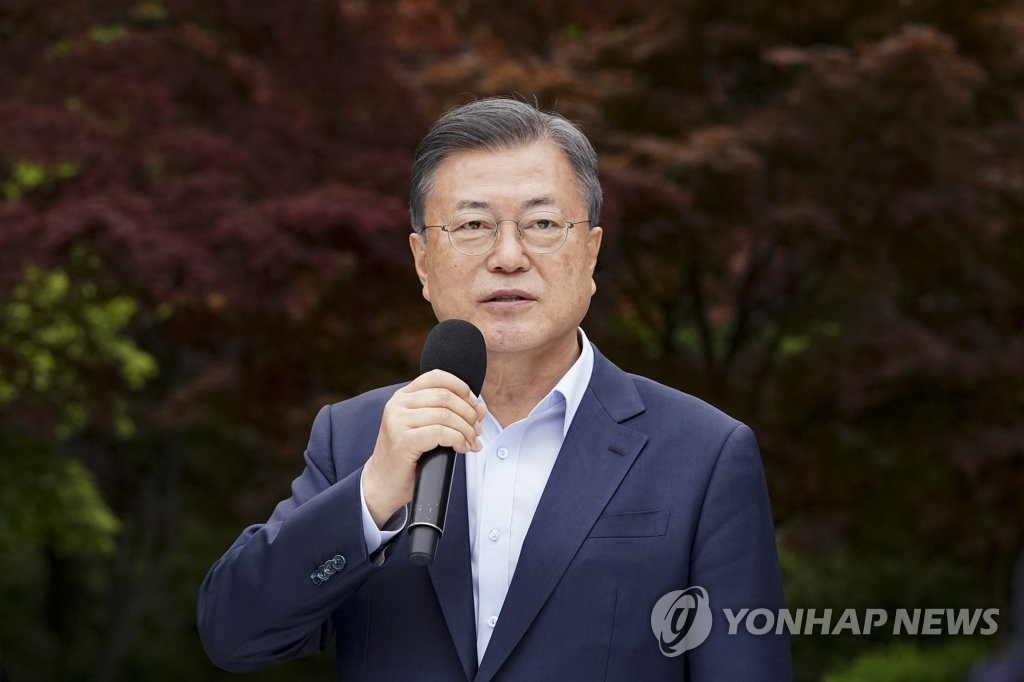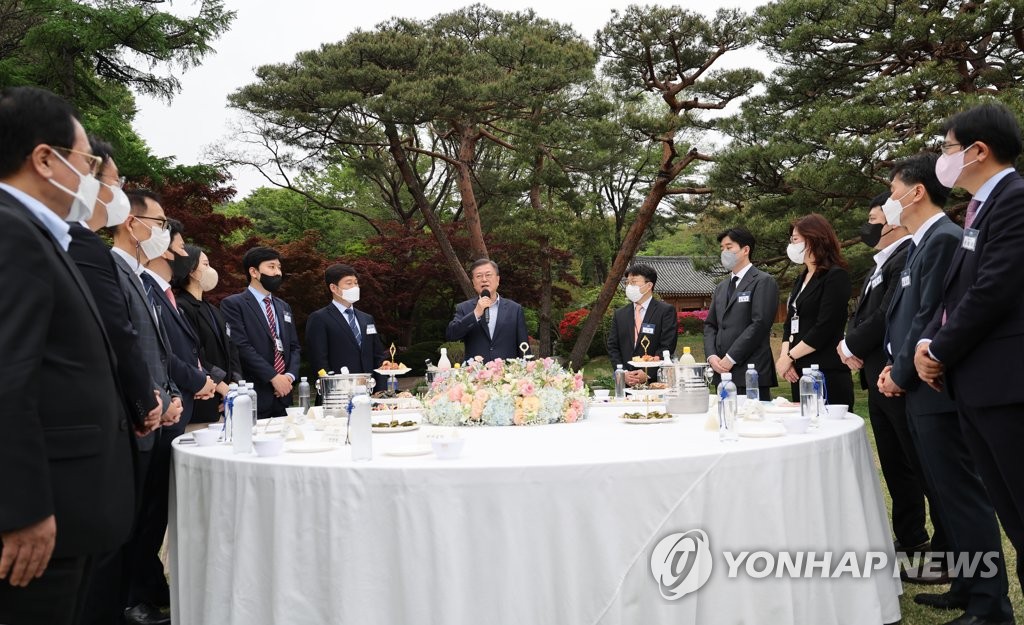- California Assembly OKs highest minimum wage in nation
- S. Korea unveils first graphic cigarette warnings
- US joins with South Korea, Japan in bid to deter North Korea
- LPGA golfer Chun In-gee finally back in action
- S. Korea won’t be top seed in final World Cup qualification round
- US men’s soccer misses 2nd straight Olympics
- US back on track in qualifying with 4-0 win over Guatemala
- High-intensity workout injuries spawn cottage industry
- CDC expands range of Zika mosquitoes into parts of Northeast
- Who knew? ‘The Walking Dead’ is helping families connect
Moon voices support for compromise deal on prosecution reform legislation
President Moon Jae-in voiced support Monday for a compromise deal on prosecution reform legislation, urging the prosecution to make more efforts to ensure fairer and more efficient investigations.
Moon made the remarks amid a resurgence of political clashes and fierce resistance by the prosecution over the compromise deal, which would curtail the prosecution’s investigative right to two crime types — corruption and economic crimes — before removing it completely.
National Assembly Speaker Park Byeong-seug brokered the compromise deal last week, with both the ruling Democratic Party (DP) and the main opposition People Power Party (PPP) accepting it.
The deal, however, drew unexpectedly strong criticism from the public that lawmakers colluded to shield themselves from prosecution investigations, as the agreement calls for excluding crimes related to elections and public officials from prosecution probes.


President Moon Jae-in speaks during his farewell news conference at Cheong Wa Dae in Seoul on April 25, 2022, in this photo released by the presidential office. (PHOTO NOT FOR SALE) (Yonhap)
“You know well my stance that it is desirable for the right to investigation and indictment to be separated,” Moon told reporters during his farewell press conference held less than three weeks before he leaves office.
Although the prosecution reform is desirable, Moon said the reform should receive support from people in the process of pushing for it.
“Discussions are needed at the National Assembly, and it would be even better if it is handled under agreement if possible, and consultations between the prosecution and police are also needed,” Moon said.
“In this regard, I think the agreement between the two parties, which was brokered by National Assembly Speaker Park Byeong-seug, went well,” he said.
Prosecutor General Kim Oh-soo offered to resign from his post in protest against the prosecution reform legislation, saying abolishing the prosecution’s authority to investigate would be “unconstitutional.”
Asked whether he would accept Kim’s resignation offer, Moon did not give an answer. Still, however, Moon said he “fully understands” the resistance by the prosecution, because the legislation would weaken the prosecution’s powers.
Meanwhile, Moon stopped short of giving an explicit answer when asked if he would grant pardons for former President Lee Myung-bak or former South Gyeongsang Gov. Kim Kyung-soo in the wake of Buddha’s Birthday on May 8.
“As you asked, it is true that there are requests for amnesty for them,” Moon said. “Amnesty is said to be the president’s own authority. But I don’t think the president has the power to do it in his own way.”
Moon plans to move out of Cheong Wa Dae on May 9, a day before his successor Yoon Suk-yeol takes office, and will attend Yoon’s inauguration ceremony the following day.
The decision to leave Cheong Wa Dae on the eve of Yoon’s inauguration is in line with Yoon’s plan to open the Cheong Wa Dae compound to the public on his first day in office after relocating the presidential office to what is now the defense ministry building.
Moon said he plans to leave work at Cheong Wa Dae at 6 p.m. on May 9 and spending his final day in office outside Cheong Wa Dae is “not at all uncomfortable.”
With regard to his life after leaving office, Moon said he will live life as an ordinary person and will not stay involved in politics.








![일본 사도광산 [서경덕 교수 제공. 재판매 및 DB 금지]](http://www.koreatimesus.com/wp-content/uploads/2024/07/PYH2024072610800050400_P4-copy-120x134.jpg)


